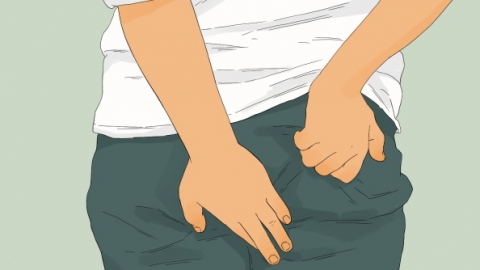How to quickly relieve pain from anal fissures
Anal fissures can be managed by using topical analgesic ointments, warm sitz baths, adjusting bowel habits, applying lubricants, and avoiding irritation to the affected area. These methods help relieve pain quickly and reduce further damage to the fissure site. If pain continues to worsen, bleeding increases, or signs of infection appear, prompt medical attention is recommended.
1. Topical analgesic ointments: Under medical guidance, apply ointments containing ingredients such as lidocaine directly to the fissure site. This helps block pain signal transmission and rapidly reduces pain during defecation or daily activities. Use according to product instructions.
2. Warm sitz baths: Soak in warm water at 38–40°C for 10–15 minutes, 2–3 times daily. This helps relax the muscles around the anus, improves local blood circulation, relieves pain caused by muscle spasms, and cleanses the wound to reduce the risk of infection.

3. Adjusting bowel habits: Avoid straining during bowel movements. In cases of constipation, short-term use of mild laxatives may be helpful. Reducing time spent on the toilet minimizes friction and pulling on the fissure, thereby reducing pain triggers and maintaining regular bowel movements.
4. Using lubricants: Apply lubricants such as petroleum jelly around the anus before defecation, or take oral osmotic laxatives like polyethylene glycol to soften stools. This reduces friction between stool and the wound, alleviating tearing pain during bowel movements.
5. Avoiding irritation to the affected area: Wear loose, breathable cotton underwear; avoid prolonged sitting or pressure on the anal area to minimize mechanical irritation. Also avoid spicy and irritating foods that may exacerbate pain.
In daily life, consume plenty of high-fiber vegetables and fruits, maintain adequate daily fluid intake, gently wipe with soft toilet paper after bowel movements (avoid vigorous rubbing), follow a regular sleep schedule, and engage in moderate physical activity to promote intestinal motility and prevent constipation.




